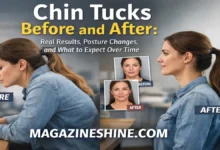Supplement Information Theweeklyhealthiness: Expert Insights for Smarter Health Choices

Discover expert supplement information theweeklyhealthiness with practical tips, honest insights, and research-backed advice to support your daily health journey.
Understanding Supplement Information Theweeklyhealthiness
When it comes to health, supplements often stand at the center of conversations. People seek out vitamins, minerals, herbs, and powders to fill gaps in their diets, improve performance, or simply maintain balance. The tricky part is sorting through endless marketing claims and knowing which supplement information theweeklyhealthiness truly makes sense for you.
Supplements can be beneficial, but they are not magic bullets. They are intended to complement your lifestyle, not replace whole foods or healthy habits. That’s where reliable supplement information theweeklyhealthiness becomes crucial—giving you the knowledge to make informed decisions about what you put in your body.
Why Supplement Information Theweeklyhealthiness Matters
In today’s busy world, nutrition often takes a back seat. Quick meals, processed snacks, and stressful schedules can leave gaps in our nutrient intake. Supplements can step in to help, but only if chosen wisely. Without proper supplement information theweeklyhealthiness, you risk wasting money or even harming your health.
Accurate, well-researched supplement information theweeklyhealthiness helps people separate hype from fact. Instead of falling for trendy fads, you can understand which products have scientific backing and which are just marketing fluff. Having this clarity empowers you to align your supplement choices with your health goals.
Common Misconceptions in Supplement Information Theweeklyhealthiness
One of the biggest myths about supplements is that “more is always better.” Many people believe taking high doses of vitamins or minerals will lead to faster or stronger results. However, supplement information theweeklyhealthiness shows that overdoing it can actually cause side effects or toxicity. For example, too much vitamin D can harm your kidneys, while excess iron may damage your liver.
Another misconception is assuming supplements can replace a balanced diet. While supplements can help bridge nutritional gaps, they cannot provide the complex synergy of nutrients found in whole foods. According to supplement information theweeklyhealthiness, food remains the foundation, while supplements should act as supportive tools.
Key Types of Supplements Explained
Supplements come in many forms, and understanding the categories helps you navigate the shelves. Here’s a breakdown supported by supplement information theweeklyhealthiness:
- Vitamins and Minerals – These are the most common, ranging from multivitamins to specific nutrients like magnesium, vitamin C, or zinc.
- Herbal and Botanical – Natural extracts such as turmeric, ginseng, or ashwagandha that support various health functions.
- Sports and Performance – Protein powders, creatine, and branched-chain amino acids (BCAAs) designed for athletes and fitness enthusiasts.
- Specialized Formulas – Probiotics, omega-3 oils, or joint support blends that target specific health concerns.
The goal is not to take everything on the market but to use supplement information theweeklyhealthiness to identify what you genuinely need.
How to Evaluate Supplement Information Theweeklyhealthiness
When researching supplements, not all sources are created equal. Marketing campaigns often exaggerate benefits, while some blogs share opinions without evidence. Trusted supplement information theweeklyhealthiness usually comes from peer-reviewed studies, reputable health organizations, or professionals with clinical expertise.
Always ask yourself:
- Does the product have scientific research to support its claims?
- Is the dosage aligned with safe and effective standards?
- Does the brand share transparency about sourcing and testing?
By critically evaluating supplement information theweeklyhealthiness, you can avoid falling into the trap of flashy packaging or misleading influencers.
Supplement Information Theweeklyhealthiness and Safety

Safety is a top priority when it comes to supplements. Just because a product is “natural” doesn’t automatically make it safe. For instance, herbs like kava or ephedra have been linked to serious side effects. Proper supplement information theweeklyhealthiness highlights possible interactions, contraindications, and safe dosage ranges.
It’s also important to check if supplements are third-party tested. Independent certifications like NSF or USP provide extra assurance that what’s on the label matches what’s inside the bottle. Incorporating this type of supplement information theweeklyhealthiness into your decision-making helps prevent health risks.
The Role of Lifestyle Alongside Supplements
Supplements cannot make up for poor sleep, lack of exercise, or chronic stress. According to supplement information theweeklyhealthiness, the foundation of wellness is always lifestyle. Think of supplements as reinforcements—not the entire army.
When paired with nutrient-dense meals, regular physical activity, and stress management practices, supplements can truly shine. This balanced approach, backed by supplement information theweeklyhealthiness, ensures you’re optimizing your overall health rather than relying on shortcuts.
Practical Tips for Using Supplement Information Theweeklyhealthiness
Here are some practical ways to apply what you learn:
| Step | How to Apply Supplement Information Theweeklyhealthiness |
|---|---|
| Assess Needs | Get blood tests or professional advice to know where you’re deficient. |
| Start Simple | Begin with basics like vitamin D, omega-3, or magnesium if needed. |
| Track Progress | Keep a journal of how you feel and any side effects. |
| Stay Updated | Research evolves; review supplement information theweeklyhealthiness regularly. |
This structured approach prevents overwhelm and helps you create a supplement routine tailored to your unique needs.
Expert Quotes on Supplement Information Theweeklyhealthiness
“Supplements are tools, not cures. Their power lies in complementing a healthy lifestyle.”
“Reliable supplement information theweeklyhealthiness is the compass that guides consumers away from myths and toward evidence-based choices.”
FAQs on Supplement Information Theweeklyhealthiness
Q: Can supplements replace meals or a healthy diet?
A: No. Supplement information theweeklyhealthiness clearly shows that supplements are meant to support nutrition, not replace real food. Whole foods contain fiber, antioxidants, and phytonutrients that pills cannot replicate.
Q: How do I know which supplements are safe?
A: Look for third-party certifications, transparent labels, and evidence-based recommendations. Supplement information theweeklyhealthiness emphasizes checking safety and dosage guidelines before use.
Q: Are herbal supplements safer than synthetic vitamins?
A: Not necessarily. Herbs can still interact with medications or cause side effects. Supplement information theweeklyhealthiness suggests treating herbal and synthetic products with equal caution.
Q: How long before I notice results from supplements?
A: It depends on the nutrient and your body’s condition. Some, like caffeine, work quickly. Others, like omega-3 or probiotics, may take weeks. Supplement information theweeklyhealthiness notes that consistency matters most.
Q: Should I consult a doctor before taking supplements?
A: Yes, especially if you’re on medications, pregnant, or have chronic conditions. Supplement information theweeklyhealthiness stresses the importance of professional guidance.
Conclusion
At the end of the day, supplements can be valuable allies in health—but only if used wisely. Reliable supplement information theweeklyhealthiness empowers you to make choices that are safe, effective, and aligned with your personal goals. With the right knowledge, supplements stop being overwhelming and start being a simple, supportive tool in your wellness journey.





